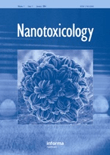
Nanotoxicology
metrics 2024
Investigating the Interactions of Nanomaterials with Biology
Introduction
Nanotoxicology is a pioneering journal published by Taylor & Francis Ltd, dedicated to the critical examination of the toxicity of nanomaterials and their implications in biomedical engineering, nanoscience, and toxicology. With an ISSN of 1743-5390 and E-ISSN of 1743-5404, this journal has established itself as a significant player in its field since its inception in 2007. Classified within the Q2 category for 2023 in major categories such as Biomedical Engineering, Nanoscience and Nanotechnology, and Toxicology, it reflects its robust impact across interdisciplinary research. Notably, its Scopus rankings position it in the top percentile, underscoring its influence in pharmacology and toxicology. The journal offers scholars, researchers, and professionals a platform for sharing pioneering studies and reviews, thereby advancing the understanding of nanomaterial interactions with biological systems. Published from the United Kingdom, Nanotoxicology recognizes the growing importance of nanotechnology in health and environmental contexts, making it an essential resource for anyone engaged in this rapidly evolving field.
Metrics 2024
 0.82
0.82 3.60
3.60 4.60
4.60 107
107Metrics History
Rank 2024
Scopus
IF (Web Of Science)
JCI (Web Of Science)
Quartile History
Similar Journals

ChemNanoMat
Fostering Collaboration in Cutting-Edge ResearchChemNanoMat is a prestigious academic journal published by WILEY-V C H VERLAG GMBH, dedicated to the rapidly evolving fields of nanoscale materials and their applications in diverse areas such as biomaterials, energy engineering, and environmental sustainability. With the journal's ISSN 2199-692X and recognized quality, as evidenced by its Q2 rankings across multiple categories—including Biomaterials and Renewable Energy—ChemNanoMat serves as a crucial platform for researchers, professionals, and students to disseminate their findings and foster collaborations. Operating from Germany, the journal encourages the exploration of innovative materials solutions to meet tomorrow's challenges. While it does not currently offer open access options, it remains highly regarded in the academic community with a competitive impact factor that emphasizes its relevance and influence in guiding future research directions. Covering a broad scope from 2015 through 2024, ChemNanoMat is key for anyone invested in the advancement of materials chemistry and related scientific fields.

BioNanoScience
Exploring the Intersection of Biology and Nanoscience.BioNanoScience is an esteemed academic journal published by SPRINGER, dedicated to the interdisciplinary field of bioengineering and biomedical engineering. With an ISSN of 2191-1630 and an E-ISSN of 2191-1649, the journal has established itself as a significant platform for sharing innovative research and developments in nanotechnology as applied to biomedical contexts. Although it operates under a subscription model, the journal maintains a strong impact within its field, achieving a Q3 quartile ranking in both categories for 2023 and has a solid standing in Scopus rankings, where it ranks #129 out of 303 in Biomedical Engineering and #87 out of 162 in Bioengineering. The journal not only aims to publish high-quality research, but also seeks to foster collaboration between scientists, engineers, and healthcare professionals to address pressing global health challenges through nanotechnology. As an essential resource for researchers, professionals, and students, BioNanoScience continues to contribute to the advancement of knowledge and innovation in bioengineering.
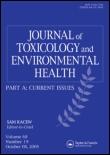
JOURNAL OF TOXICOLOGY AND ENVIRONMENTAL HEALTH-PART A-CURRENT ISSUES
Unraveling the Complexities of Toxicology and HealthJOURNAL OF TOXICOLOGY AND ENVIRONMENTAL HEALTH-PART A-CURRENT ISSUES, published by Taylor & Francis Inc, stands as a key resource in the interdisciplinary field of toxicology and environmental health. Operating under the ISSN 1528-7394 and E-ISSN 1087-2620, this journal maintains a strong presence with a Q2 category ranking in Health, Toxicology and Mutagenesis and a Q3 ranking in Toxicology as of 2023. It aims to disseminate critical findings that address contemporary issues in toxicology and environmental health, emphasizing the implications of environmental agents on human health. The journal offers both subscription and open access options, making cutting-edge research accessible to a diverse readership. With coverage of key topics from 1998 to 2024, it is an essential platform for academics, professionals, and students seeking to stay at the forefront of environmental health sciences.
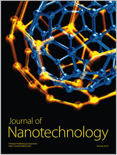
Journal of Nanotechnology
Advancing Knowledge in the World of NanomaterialsThe Journal of Nanotechnology, published by Hindawi Ltd., is a premier open-access platform dedicated to delivering high-quality research in the dynamic field of nanotechnology. With the ISSN 1687-9503 and E-ISSN 1687-9511, this journal has been at the forefront of disseminating innovative findings since its transition to open access in 2009, fostering a global dialogue among researchers, professionals, and students. Based in Egypt, the journal maintains its commitment to advancing the material science sector, currently holding a prestigious Q2 ranking in the 2023 Materials Science (miscellaneous) category, reflecting its significant contribution to the field. With a Scopus ranking of #162 out of 463 journals in General Materials Science, placing it in the 65th percentile, the Journal of Nanotechnology serves as a crucial resource for those looking to explore the latest advancements and applications in nanomaterials. The journal invites submissions that align with its scope, which emphasizes interdisciplinary approaches and novel methodologies, promising to enhance both academic and practical aspects of nanotechnology.
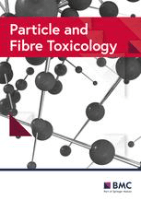
Particle and Fibre Toxicology
Innovating research in environmental health.Particle and Fibre Toxicology is a leading open-access journal dedicated to advancing the field of toxicology, specifically focusing on the health impacts of particulate matter and fibers. Published by BMC since 2004, this journal operates from its offices in the United Kingdom and has gained significant recognition in the scientific community, achieving an impressive impact factor that highlights its relevance and influence. As indicated by its Q1 ranking in various categories including Health, Toxicology and Mutagenesis and Medicine (miscellaneous), it occupies a prestigious position in the academic landscape, appealing to researchers, professionals, and students alike. With a Scopus ranking of #4 in Toxicology and #7 in Environmental Science, the journal ensures high visibility and accessibility, providing a platform for the dissemination of key research findings and innovative methodologies in the interdisciplinary domains of toxicology. Through its commitment to open access, Particle and Fibre Toxicology fosters knowledge-sharing and collaboration, facilitating significant advancements in our understanding of the toxicological effects of environmental agents.
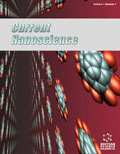
Current Nanoscience
Connecting Disciplines Through Nanoscience InnovationCurrent Nanoscience is a prominent journal published by Bentham Science Publishers Ltd, dedicated to advancing the field of nanoscience through the dissemination of high-quality research and review articles. Since its inception in 2006, the journal has provided a platform for innovative studies across a variety of related disciplines, including bioengineering, biomedical engineering, biotechnology, and nanotechnology, reflecting its diverse scope and interdisciplinary nature. With a Q3 ranking in several categories such as Biomedical Engineering and Pharmaceutical Science and a Scopus percentile ranking around the 60th in its field, Current Nanoscience serves as a vital resource for researchers and professionals seeking to stay abreast of the latest developments and breakthroughs. Although it operates without an open access model, the journal maintains a commitment to enhancing accessibility and relevance in the scientific community. The editorial team is focused on publishing articles that address both theoretical and practical aspects of nanoscience, ensuring that the findings contribute to knowledge and innovation in areas critical to technology and healthcare.
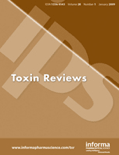
Toxin Reviews
Pioneering Insights in Toxicology Since 1982Toxin Reviews is a premier academic journal focused on the critical field of Toxicology, published by Taylor & Francis Inc. Established with an aim to foster research and disseminate knowledge, this journal has been pivotal since its inception in 1982 and continues to be a leading platform for both emerging and established researchers. With an impressive impact factor and ranked in the 75th percentile among its peers in the Scopus categories, it serves as an essential resource for scientists, practitioners, and students interested in understanding the complexities of toxins and their effects on health. The journal provides an Open Access platform, enhancing visibility and accessibility of research findings to a broader audience. Covering a wide scope, Toxin Reviews plays a vital role in bridging gaps between toxicological research and practical applications, ensuring that rigorous scientific inquiry translates into real-world solutions.
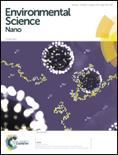
Environmental Science-Nano
Transforming Environmental Challenges with Nanotechnology InsightsEnvironmental Science-Nano, an esteemed journal published by the Royal Society of Chemistry, focuses on the intersection of environmental science and nanotechnology. With an ISSN of 2051-8153 and an E-ISSN of 2051-8161, the journal serves as a critical platform for disseminating innovative research and advancements from 2014 to 2024. Within its scope, it presents studies that explore the implications of nanoscale materials on environmental processes and public health. Notably, it ranks in the Q1 quartile in both Environmental Science and Materials Science categories according to the latest metrics, placing it in the top tier of scientific journals worldwide, with an impressive Scopus rank of 17/233 for General Environmental Science and 23/196 for Miscellaneous Materials Science. The journal is dedicated to fostering interdisciplinary collaboration and aims to promote sustainable solutions through the responsible application of nanotechnology. As an essential resource for researchers, professionals, and students alike, Environmental Science-Nano commits to maintaining high editorial standards while providing open access options for its groundbreaking publications.

Small Methods
Bridging the gap between theory and practical application.Small Methods, published by WILEY-V C H VERLAG GMBH, is an esteemed peer-reviewed journal dedicated to advancing the fields of Chemistry and Materials Science. With a 2023 impact factor placing it in the Q1 category of both disciplines, and impressive Scopus rankings (27th in Materials Science and Chemistry), this journal serves as a vital platform for researchers and professionals alike to disseminate their innovative methodologies and pioneering experiments. Spanning a wide array of topics from nanotechnology to polymer science, Small Methods encourages the submission of high-quality research that illustrates novel small-scale methods applicable in various scientific contexts. Despite its absence of Open Access options, the journal is highly regarded for its rigorous editorial standards and comprehensive peer-review process, making it indispensable for students and academics aiming to stay at the forefront of these dynamic fields. With convergence years from 2017 to 2024, Small Methods continues to define the intersection of methodological innovation and practical application in both chemistry and material sciences.

ARCHIVES OF TOXICOLOGY
Illuminating the Path in Toxicology and HealthARCHIVES OF TOXICOLOGY is a prestigious journal published by Springer Heidelberg, dedicated to advancing research in the field of toxicology and related disciplines. With a distinguished history dating back to 1930, this journal has continuously provided vital insights and groundbreaking studies, making it a cornerstone in the areas of health, toxicology, and medicine. Recognized for its high impact, it occupies a top-ranking position in Scopus, with remarkable quartile placements in 2023, categorizing it as Q1 in Health, Toxicology and Mutagenesis, and Q1 in Medicine (Miscellaneous). The journal highlights critical research and innovative methodologies, appealing to a diverse audience of researchers, professionals, and students committed to understanding the complexities of toxic substances and their implications for public health and environmental safety. The journal does not currently offer open access, allowing for a more traditional but rigorous peer-review process that ensures the quality and integrity of every published article. Join the global discourse in toxicological science with ARCHIVES OF TOXICOLOGY, where every contribution furthers the understanding of safety and toxicity in our world.